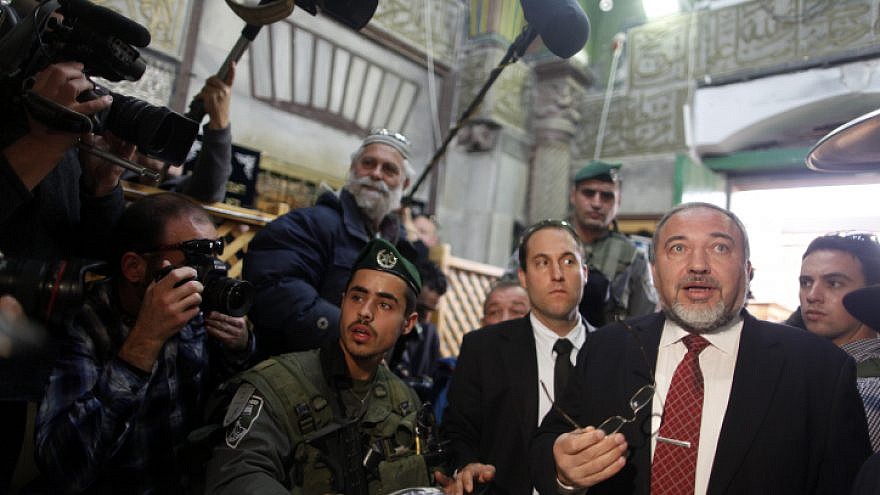Defense Minister Avigdor Lieberman on Sunday approved a plan to build a new housing complex for the Jewish community of Hebron, the first major building project in the city in two decades.
“A new Jewish neighborhood in Hebron, for the first time in 20 years!” enthused Lieberman in an official statement. “Instead of a military camp, we will build a new neighborhood, with space for 31 apartments, 2 kindergartens and a dormitory.”
The project will be located near King David Street, close to the Hebron Yeshiva and an Israel Defense Forces base called Plugat Hamitkanim.
Left-wing Meretz Party chairman Tamar Zandberg blasted the decision, calling the Jewish community of Hebron the “most extreme, dangerous and destructive settlement,” and saying it “must be evacuated, certainly not expanded.”
However, the community celebrated the authorization to build the Hezekiah Quarter, just outside what they say “was once referred to as the ‘Jewish ghetto’ by literature of 100 years ago.”
Hebron is a city mentioned in the Bible as the first land acquisition in Israel by the patriarch Abraham, and the burial site of Abraham, Sarah, Isaac, Rebecca, Jacob and Leah. King Herod built a massive mausoleum atop the Cave of Machpelah more than 2,000 years ago, which came to be known as the Tomb of the Patriarchs.
“Building in the City of the Patriarchs by the Israeli government is a Zionist, just, necessary and blessed step,” the community said in a statement. “Upon receiving the building permit for the Hezekiah Quarter, we congratulate and thank the prime minister and all the ministers, Knesset members and public figures who worked with determination and dedication together with us to advance the building permit.”
The community said the issuing of the permits was part of Israel’s reaction to a UNESCO vote this summer that declared the Tomb of the Patriarchs and the City of Hebron a “Palestinian Heritage Site in danger.” The United States and Israel announced their withdrawal from UNESCO shortly afterwards.
“The response to the narrative that suggests that we are foreigners here is not just to pull out of UNESCO, but also to strengthen Jewish presence in Hebron,” said Yishai Fleisher, the international spokesman for the Jewish Community of Hebron.
At the end of August, the Israeli government gave Hebron official status as an independent Israeli municipality separate from that of the Palestinian Authority’s Hebron Municipality, which oversees 200,000 Arab residents who live in the economic and manufacturing center which boasts multistory shopping malls, universities, hospitals and a soccer stadium.


























